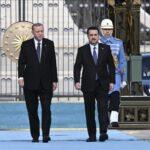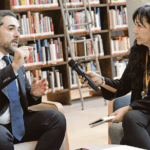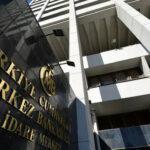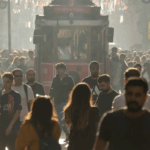BY ALAATTIN AKTAS
On May 14, one leg of the election will be completed and the parliamentary election will be over. Maybe the new president will be determined that day or the elector will vote for the second tour on May 28.
But even if only the parliamentary election ends on May 14, the picture that will emerge will undoubtedly affect the second round on May 28.
If one of the alliances wins the parliamentary majority with an overwhelming advantage, likely, the presidential election will also result in the first round. In the absence of a clear advantage in the election of a deputy, if the President is not elected in the first round, the candidate of the party with more seats may be more fortunate in the second round.
The most constant fact after the election is that the current economic policy will change!
Even if the People’s Alliance wins the election, they will abandon their current practices. An attempt (calling former Economy Minister Mehmet Simsek to lead the economy) has already been made to do so.
The People’s Alliance wants to change its practices, it sees that it must change.
The difficulties to be experienced after the election are valid for both alliances. The advantage of the Nation Alliance is that it is well prepared for this; more importantly, its clear intention to make changes is certain. The Nation Alliance intends to transition from today’s set of practices to a firmly grounded economic policy.
So, what will happen next? This is not overlooked!
The general opinion is that there will be a large capital inflow from abroad if the Nation Alliance wins the elections. But this will also have some side effects.
Suppose, for example, USD 20bn came in a month for portfolio investment. To buy this currency, you will pay to TRY in return. USD 20bn of inflow means banking TRY 380bn to the market at today’s foreign exchange (FX) rate. Isn’t it obvious what will happen if that much money is released in a very short time? Inflation skyrockets.
So, this cannot be allowed. This money must be withdrawn from the system somehow. The way is clear, it is inevitable to increase the interest rate.
But I’m not talking about such a huge increase in interest rates. Since Turkey has suffocated the banking system with low-interest rates and long-term papers, it has destroyed the chance of a sudden increase in interest rates. Interest can only be increased in small proportions and spread over time.
We always perceive the concept of capital control as the prevention of access to foreign currency and the restriction of taking foreign currency abroad. This time, it may be necessary to bring up reverse capital control.
If too much foreign currency comes from abroad, there may be downward pressure on the FX rates. If the horizontal trend, which has already been held steady for seven months and will take nine months if we include the period until the election, reverses, the already broken balance in foreign trade may completely be disrupted.
And of course, as I have just emphasized, the rise in inflation…
Considering all these, certain restrictions may be imposed on foreign currency inflows from abroad. This is what I call reverse capital control.










